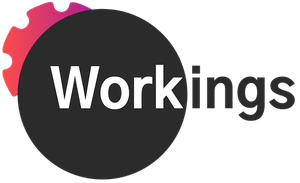While many actual families do of course dissolve in various ways, the idealized notion of “a family” is that it’s an enduring unit, in which every member will always have a place—and to which every member will always feel connected. But because companies, roles, and people change all the time, that doesn’t accurately describe any work team I’ve ever been a part of; in fact, all that the ‘family’ framework does do, in my view, is manufacture pain—which is why I’ve finally decided to write about it.
When someone chooses to leave a team—even if it is TOTALLY the right step for them—the notion that they’re leaving a family makes that move harder. Similarly, when someone is let go from a team, the ‘family’ framework has the potential to make that decision feel way more personal than it should. And even for those employees who stay with a company for many years, it’s a fraught framework, complete with weird, infantilizing notions (Who are the parents? Who are the kids?) that really should have no place on a team of adults.
I much prefer the framework that Conscious Capitalism advocates—that business is a set of “voluntary exchanges for mutual benefit.” But since that’s a bit clinical, I’ll also offer up some replacement metaphors. Sports teams! Theater troupes!
Both of these metaphors work well, I think, because, unlike the family metaphor, they capture some truths about business—and about people:
- The need for a work team to perform at a certain level, and to deliver a particular result.
- In order to achieve that result, the need for a range of roles, each with distinct qualifications and expectations.
- The understanding that those roles will change shape, and change hands, as the organization—and the individuals who comprise it in any given moment—continue to evolve.
- The concepts of “coaching” or “directing”—which are much healthier ways for adults to interact than (heaven forbid!) attempting to “parent” one another.
- The reality that individual growth sometimes requires moving on—no matter how much warmth and regard there is on a given team. (And for the record: as much as I reject the ‘family’ framework, I 100% believe that love has a place at work. My answer to the question “Can You Really Power an Organization with Love?”—an HBR piece which I’ve kept on my desk in hardcopy form since it came out—is a resounding YES.)
So anyway: what do you think? Can we please discard the notion of work teams as “families” for once and for all and aim instead to be (the ’21-’22) Warriors or the (2015) cast of Hamilton? Let me know your thoughts!
Thanks for reading,
Kate


 Hello from Steyer!
Hello from Steyer!